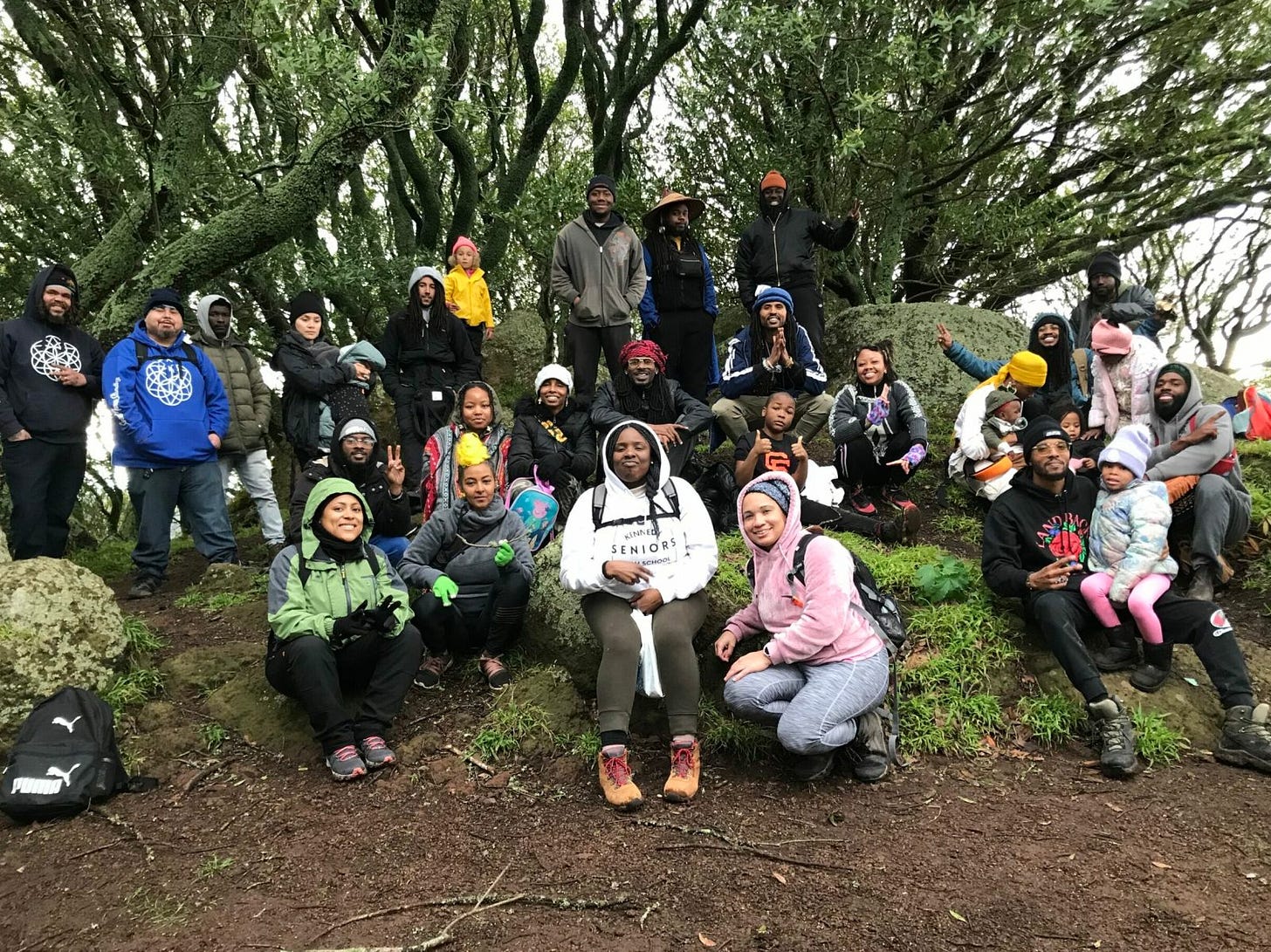Fungi: The Future of Food, Sustainability, and Mental Health
Fungi Friday's - June 2nd, 2023 - Issue #82
Fungi Friday fam,
Can you believe it’s already June? We here at Iowa Fungi certainly can’t… this year is absolutely flying, and it’s summer, which means it’s going to only pick up the pace. But even as time fly’s by, you can always be assured we’ll be here on this tiny corner of the internet, bringing you all of the best in the world of Fungi that particular week has to offer. So let’s get into it!
In today’s email:
Fungi as a food source.
Fungi as a tool for sustainability.
Fungi for mental health.
Iowa Fungi’s Update of the Week
Had our plan B trailer mover check out the situation last weekend, as we discussed, but there were a few housekeeping items he said we needed to clear up before he was comfortable moving it. So on Tuesday, one of the boys drove down, cleaned up around the tires and fingers crossed, we’ll give it a go this weekend.
FUNGI AREN’T COMING TO KILL US; THEY’RE COMING TO FEED US
In the popular HBO show "The Last of Us," a fungus turns people into flesh-eating zombies. But in the real world, fungi are actually being used to create nutritious, cost-effective, and scalable superfoods.
Israeli food-tech startup Kinoko is one company that is using fungi to create new food products. The company's flagship product is a mushroom-based burger that is high in protein and low in fat. Kinoko's burgers are also vegan and gluten-free, making them a good option for people with dietary restrictions.
Kinoko is not the only company that is using fungi to create new food products. Other companies are using fungi to create everything from pasta to cheese to yogurt. As the demand for plant-based foods continues to grow, we can expect to see even more innovative and delicious fungal foods on the market.
In addition to their nutritional benefits, fungi are also a sustainable and environmentally friendly food source. Fungi can be grown on a small footprint and they require less water and energy than traditional crops. As the world's population continues to grow, fungi could play an increasingly important role in our food supply.
So next time you're looking for a healthy and sustainable meal, don't be afraid to reach for a mushroom. Fungi aren't coming to kill us; they're coming to feed us.
Psychedelic Spotlight
Fungi Eating Plastic In Habitats Made Of Trash Could Help Us Clean The Planet
Scientists have discovered fungi that can eat plastic, which could help us clean up the world's trash islands. The fungi were found in marine environments, but they may also be found in terrestrial plastispheres, which are habitats made of trash.
The fungi are able to break down plastic by releasing enzymes that dissolve the material. This process is slow, but it could be used to clean up large amounts of plastic pollution.
The discovery of the plastic-eating fungi is a promising development in the fight against plastic pollution. If we can find ways to mass-produce the fungi, they could be used to clean up trash islands and other polluted areas.
Here are some of the potential benefits of using fungi to clean up plastic pollution:
Fungi are a renewable resource: Fungi can be grown on a small footprint and they require less water and energy than traditional methods of cleaning up pollution.
Fungi are biodegradable: Once the fungi have broken down the plastic, the resulting materials can be safely composted or recycled.
Fungi are effective at breaking down a variety of plastics: The fungi that have been discovered so far can break down a variety of plastics, including polyethylene, polypropylene, and polystyrene.
If we can harness the power of fungi, we can make a real difference in the fight against plastic pollution.
More Mushroom Mentions
How fungi can detoxify the fashion industry and fashion education
This Company's Psilocybin-Based Non Hallucinogenic Compound Heads Toward Clinical Studies
The Rise of Community Microdosing
Microdosing is the practice of taking small, sub-perceptual doses of psychedelic drugs, such as psilocybin or LSD. The practice has been gaining popularity in recent years, with some people reporting that it can improve their mental health and well-being.
In the San Francisco Bay Area, a number of community groups have formed around microdosing. These groups provide support and guidance to people who are interested in microdosing, and they offer a space for people to share their experiences.
One of the benefits of microdosing in a community setting is that it can help people to stay accountable. When people are microdosing with others, they are more likely to stick to their dosage schedule and to report any negative side effects.
Another benefit of microdosing in a community setting is that it can provide social support. People who are microdosing often report feeling more connected to others and more motivated to make positive changes in their lives.
The rise of community microdosing is a positive development. It provides people with a safe and supportive environment to explore the potential benefits of microdosing.
Here are some of the potential benefits of microdosing:
Improved mental health: Microdosing has been shown to improve mood, reduce anxiety, and increase creativity.
Increased focus and productivity: Microdosing can help people to focus and be more productive.
Reduced stress and inflammation: Microdosing can help to reduce stress and inflammation, which can improve overall health and well-being.
If you are interested in microdosing, it is important to do your research and to talk to your doctor before starting. Microdosing is not for everyone, and it is important to start with a small dose and to increase it gradually.
That’s all, folks… but before we let you go, leave a comment below on how we can make the publication even better! And if you haven’t yet, smash that SUBSCRIBE button below.
Thanks for reading as always,
BowTiedMushroom




